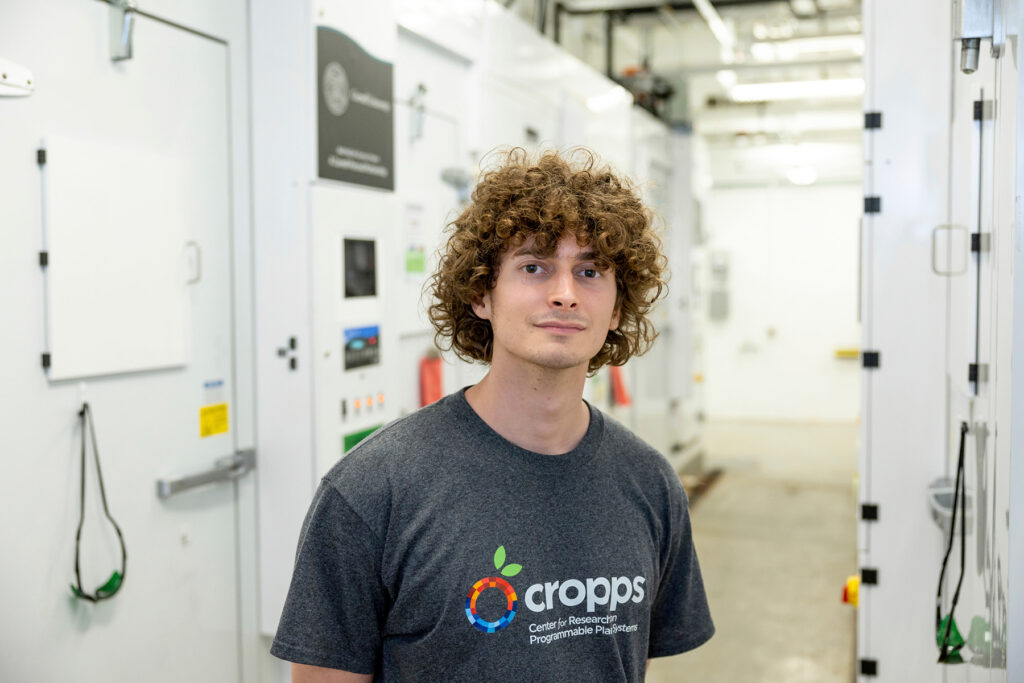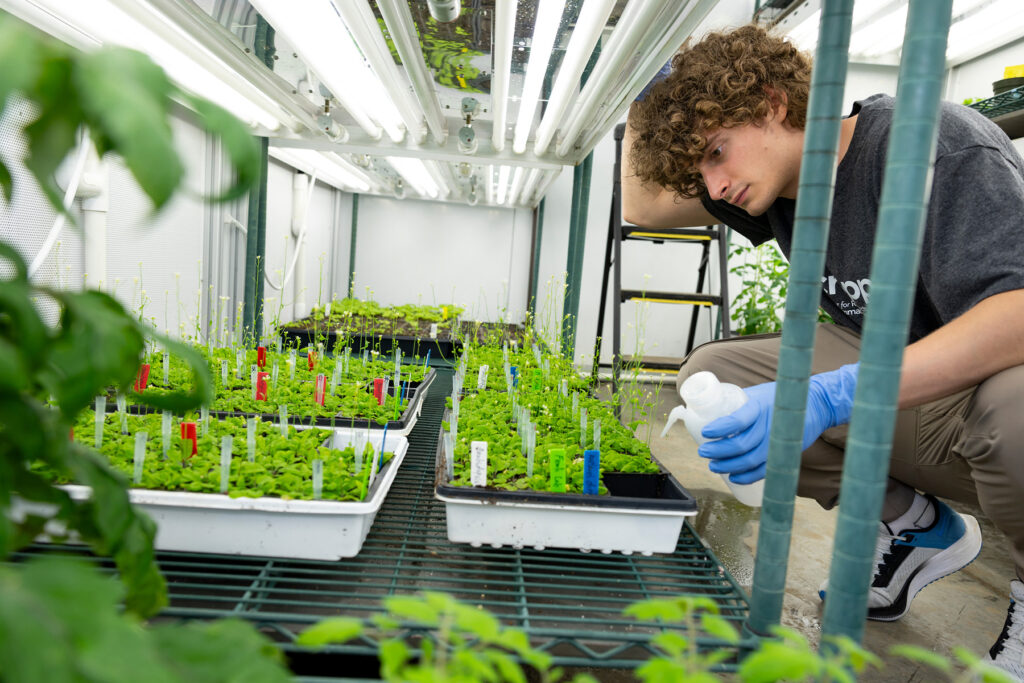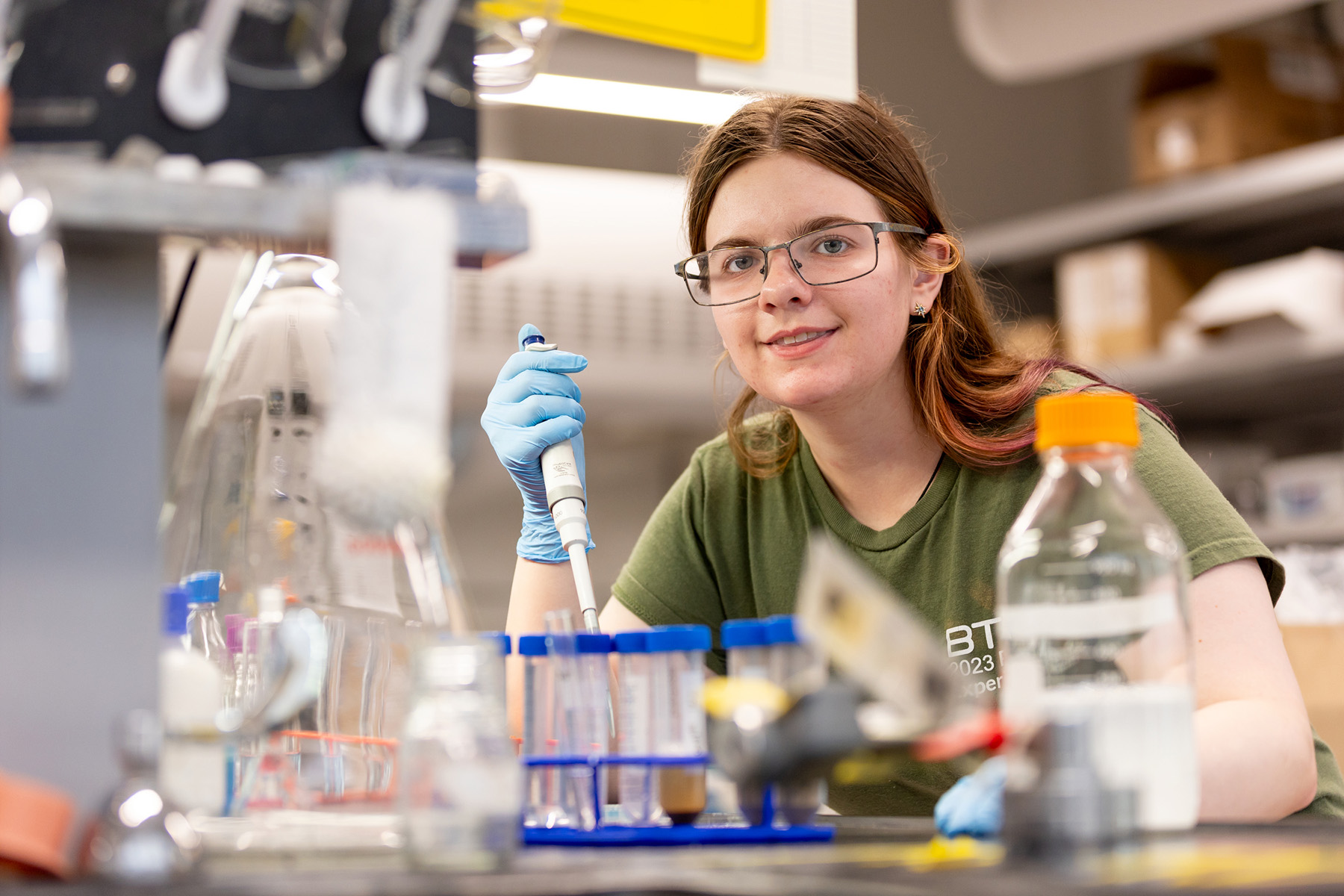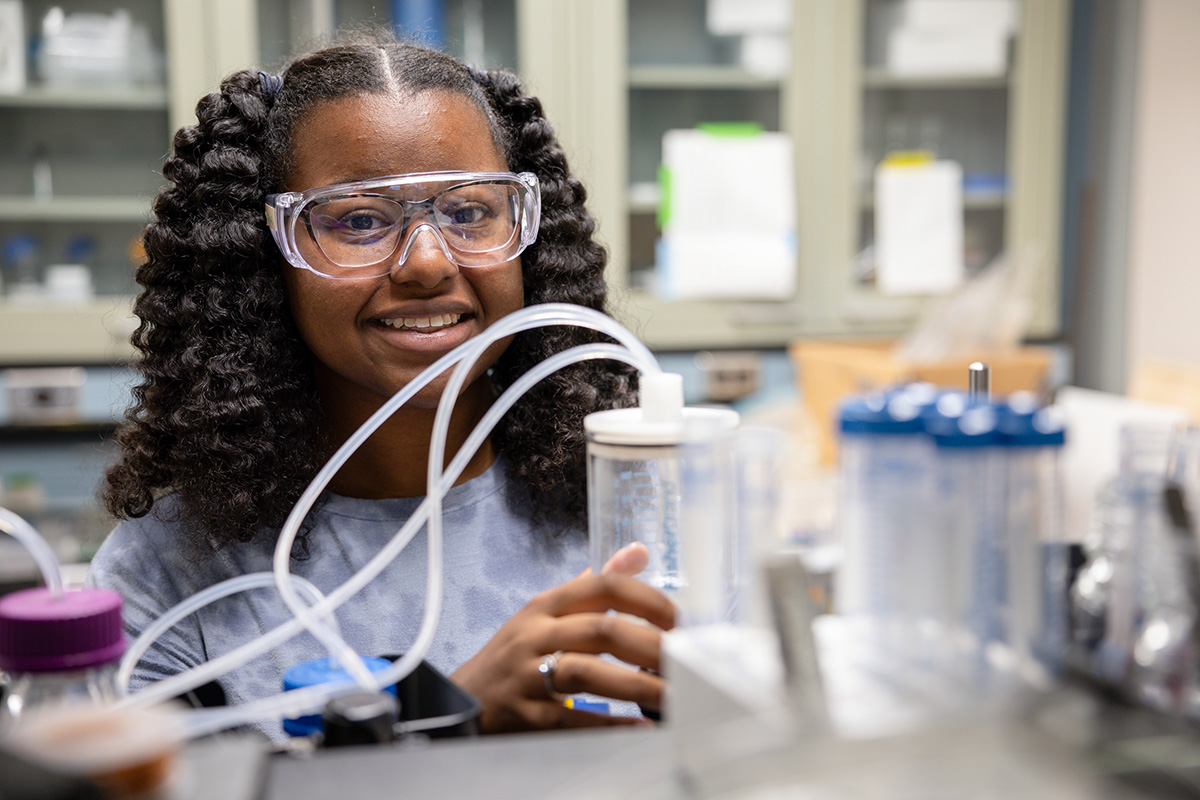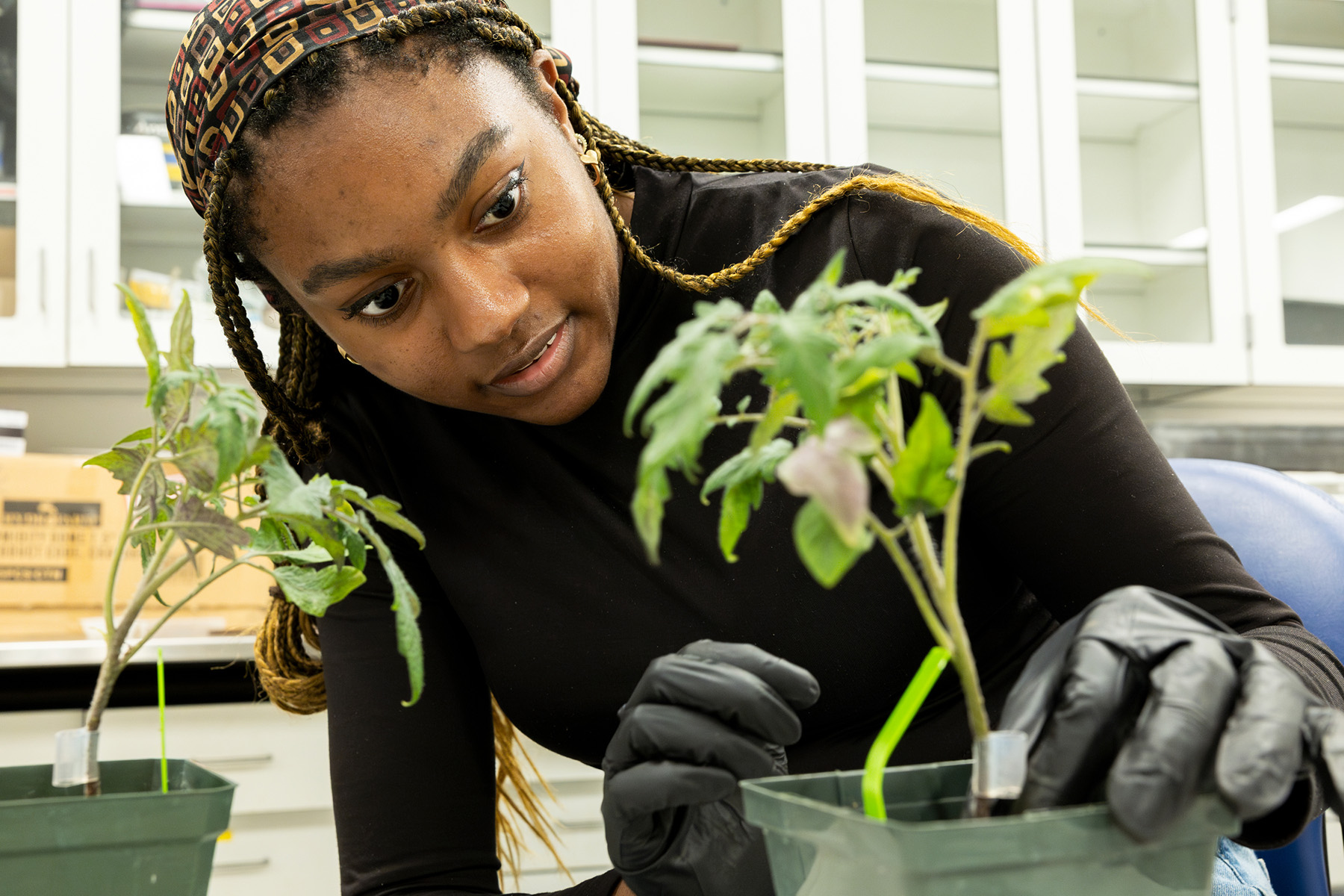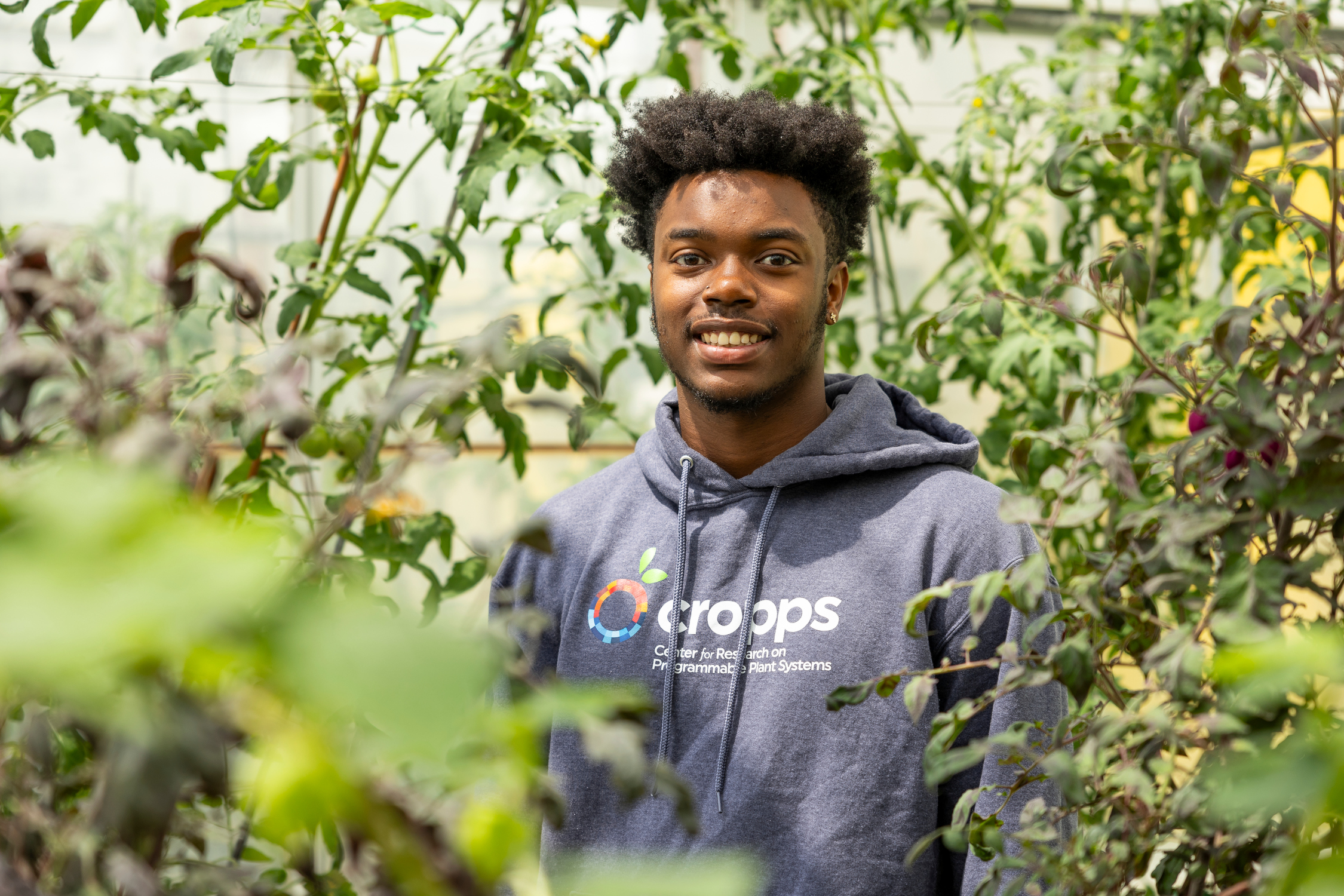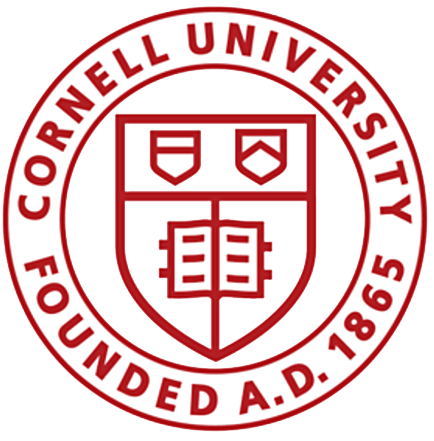Explore the world of research as we delve into the experiences of summer scholars with the Center for Research on Programmable Plant Systems (CROPPS). Join us in conversations with budding researchers as they walk us through their time in the Research Experiences for Undergraduates (REU) program for CROPPS hosted by the Boyce Thompson Institute (BTI) on the Cornell University campus. Gain insights from students Dahlia Isabella Bolt, Lexi Ellis, Jack Greger, Oge Okpala, and Kohl Perry as they engage in discussions about overcoming challenges and revealing the secrets to successful innovation.
Exploring the World of Research
An Inside Look with Jack Greger from the CROPPS REU Program
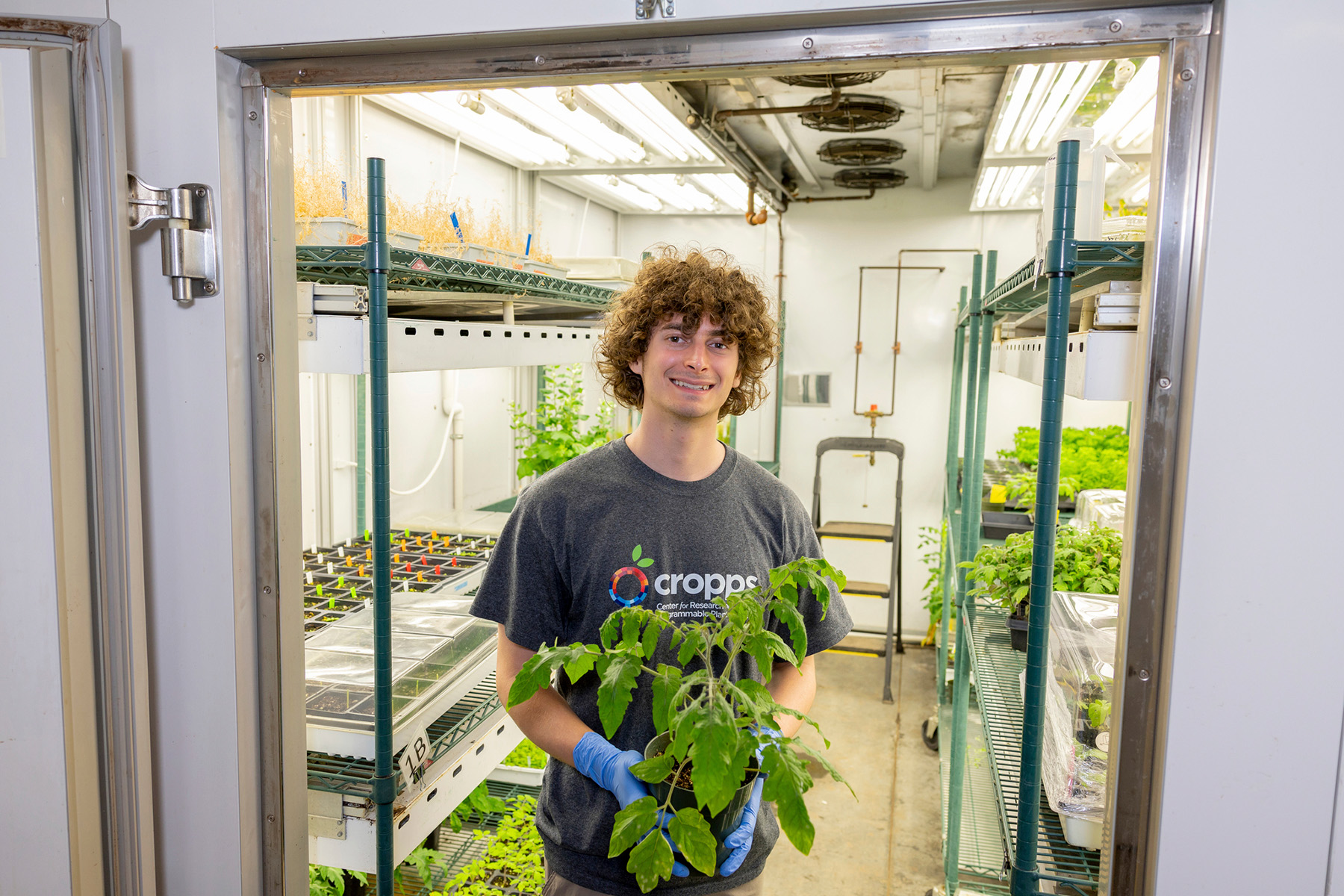
Jack Greger
- University: University of Arizona
- Majors: Bioinformatics; and Ecology and Evolutionary Biology
- Graduation year: 2024
- Hometown: Phoenix, Arizona
- Project: Monitoring Mobility: An Integrative Approach into Studying Mobile Elements in Plants
- Mentors: Margaret Frank and Sijin Li
The CROPPS program combines researchers from plant sciences, engineering, computer science, and the social sciences into an integrated program to plant biological research and translation. Tell us about your REU project with CROPPS faculty and fellow students
“I worked on two projects within the Frank lab. One was focused on the mobile RNA cluster and ways to characterize problematic regions within the genomes of tomato and eggplant. We studied how those clusters may obscure data when searching for mobile RNA.
The second project was related to the CEP cluster, and I worked on measuring CEP response in relation to a single environmental stimuli, which in my case was drought. My research tried to clear some ambiguity on the subpar pathways and starting to map out exactly how CEPR works.”
What drew you to join this project?
“The goals of CROPPS really intrigued me. CROPPS has big scientific ambitions, and it was very cool to think about ways synthetic biology and genetic engineering can unlock innovation. It is almost like science fiction, and that drew me in.”
CROPPS believes in the power of mentorship for young scientists. Tell us how that mentoring process unfolded for you through your REU summer
“It was incredible to share in the perspective of my mentors and understand how all the pieces in the lab fit together. I really appreciated working with graduate mentors. Oftentimes they’re younger: they have more recently gone through the stuff that an undergraduate like me will be going through soon, and they have useful advise about what to expect. Seeing them in action in the lab and all the innovative things they are doing, it was like ‘I can identify with this.’
My mentors also helped open up doors to talk to other people who might have valuable experiences. My mentors shared their networks, and everyone I connected with was super receptive. One faculty would introduce me to another professor, and then they’d sit with me for an hour of conversation that would greatly inform things that I was thinking about.
And finally, having somebody that you can confide in about scientific issues you’re facing is huge. It’s so empowering to have somebody who will be very real and honest with you. Just by the nature of how science works, it’s easy to feel like you’re failing. But when you have somebody who you can talk to on the same level, you don’t feel that fear of reproach, and you can grow and learn.”
What is the biggest scientific challenge you want to tackle as you progress in your career?
“For me it’s leveraging emerging technologies in genetic engineering for the sake of the environment, climate diversity, or biodiversity. I am also interested in the cascading effects of using these technologies in an equitable way and trying to use these innovations to fight inequities within current systems of our society.”
What has been your favorite part of the REU program?
“It was extremely valuable to engage with cool labs and be immersed in the scientific environment at Cornell. The community I found during my summer at Cornell was probably the thing that will impact me the most. Learning together with other students and forming bonds with faculty made the work feel really impactful.”
How has this summer experience prepared you for the future?
“The diverse viewpoints and experiences I’ve gained from this program helped shape what I want to do in the future and the paths I’ll choose. The REU program included learning a lot of technical skills needed to be able to succeed, but I think more important than that is the amount that I’ve learned about myself and the direction it’s given me. In all endeavors, especially ones in science, it’s important to have a group of people who support you and people who you can work with and count on. I found that at Cornell.”

